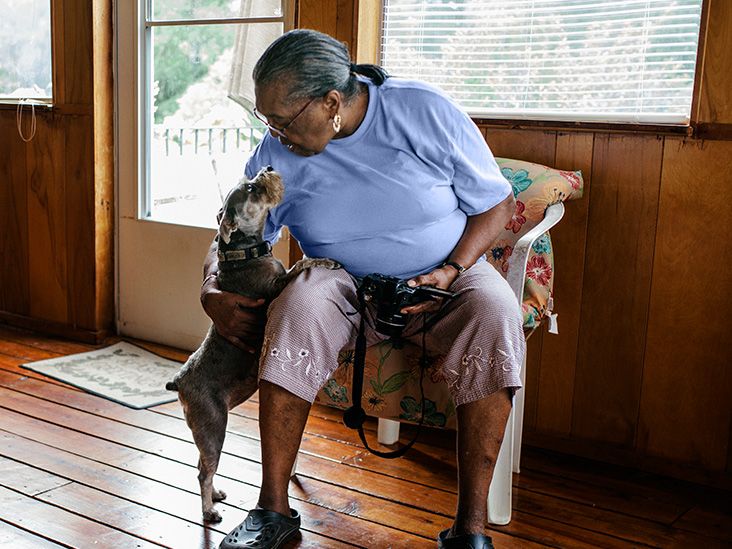It's not just about eating less as we age it's about eating better.
Yeah, we've heard it all before "just eat vegetables." But what really changes when you hit your 60s or 70s? Let's be honest, aging brings unique nutritional challenges that go far beyond simple calorie counting. Your body starts conducting a different kind of symphony, and it needs a different kind of soundtrack to keep playing beautifully.
Remember when you could eat anything and feel fine the next day? Those days might be behind us, but that doesn't mean we can't nourish our bodies in ways that make us feel vibrant and strong. In fact, the right approach to senior nutrition needs can be like giving your body a daily hug from the inside out.
Why nutrition changes with age
Think of your body as a classic car that's been running for decades. It still has plenty of miles left, but it needs premium fuel and maybe a little more TLC than it used to. Your metabolism naturally slows down, your digestive system might not be as efficient, and your body's ability to absorb certain nutrients can shift.
But here's the good news small changes can make a big difference. When we understand what's happening inside, we can work with our bodies instead of against them. It's like finally learning the rules of a game you've been playing for years.
Have you noticed that you don't feel as hungry as you used to, or that meals that once satisfied you now leave you reaching for something else an hour later? These aren't signs that something's wrong they're completely normal changes that we can address with thoughtful nutrition choices.
Key nutrients for aging bodies
Let's talk about the real MVPs when it comes to older adult diet needs. These aren't just buzzwords from a supplement bottle they're actual game-changers for how you feel every single day.
First up, protein. If muscle loss prevention is important to you (and let's be real who doesn't want to maintain their strength?), protein becomes your best friend. We need about 1 to 1.2 grams per kilogram of body weight daily, which is more than the standard recommendation for younger adults. That means if you weigh 150 pounds, you're aiming for around 68 to 82 grams of protein each day.
I know what you're thinking that sounds like a lot. But it's more manageable than it seems. A Greek yogurt parfait with nuts, a turkey sandwich, and some salmon at dinner, and you've covered a good chunk of it.
Next, let's chat about calcium and vitamin D for bone health seniors. Your bones have been supporting you for decades, but they need reinforcements as you age. Bone density naturally decreases, making bone health seniors a top priority. Studies show that adequate calcium intake, paired with vitamin D, can significantly reduce fracture risk as we age. A study published in the Journal of the American Geriatrics Society found that older adults who maintained proper calcium and vitamin D levels had a 20% lower risk of hip fractures.
B vitamins, particularly B12 and folate, are essential vitamins elders shouldn't overlook. As we get older, our stomachs produce less acid, which can make it harder to absorb B12 from food. This is why many nutritionists recommend B12 supplements or fortified foods for people over 50. Folate works hand-in-hand with B12 to support brain health and energy production.
Fiber: The unsung hero
Fiber often gets less attention than protein or calcium, but it's absolutely crucial for older adults. It helps with digestion, keeps blood sugar stable, and supports heart health. As our digestive systems naturally slow down, fiber becomes even more important for maintaining regularity and overall comfort.
The recommended daily intake is 25 grams for women and 38 grams for men over 50, but most people fall well short of this target. The good news? Increasing your fiber intake gradually can make a world of difference in how you feel day-to-day.
Think beyond bran cereals beans, lentils, vegetables, fruits, and whole grains are all fantastic sources. A hearty bowl of vegetable soup with beans, or a salad topped with chickpeas, can boost your fiber intake while adding flavor and variety to your meals.
Remember, when increasing fiber, it's important to drink plenty of water. Fiber and hydration work together like dance partners one without the other just doesn't work as well.
Healthy fats for brain and heart
Not all fats are created equal, and for aging and nutrients, the right fats can be incredibly beneficial. Omega-3 fatty acids, found in fatty fish like salmon, sardines, and mackerel, have been shown to support brain health and reduce inflammation in the body.
Research has indicated that older adults who consume adequate omega-3 fatty acids have better cognitive function and lower rates of heart disease. If fish isn't your thing, walnuts, chia seeds, and flaxseeds are plant-based alternatives that provide some of these beneficial fats.
Monounsaturated fats, found in olive oil, avocados, and nuts, are also excellent choices for heart health. These fats can help maintain healthy cholesterol levels and support cardiovascular function something that becomes increasingly important as we age.
Staying hydrated: More than just water
Here's something that might surprise you our sense of thirst actually decreases with age. This means we're more prone to dehydration without even realizing it. Dehydration can lead to confusion, dizziness, and even more serious complications in older adults.
We don't all have to chug eight glasses of water a day that's a myth that's persisted for too long. Your hydration needs depend on your activity level, climate, and health conditions. But paying attention to your body's signals becomes even more important.
Coffee, tea, and other beverages count toward your hydration, but be mindful of caffeine and alcohol, which can actually increase fluid loss. Water-rich foods like cucumbers, watermelon, and soups also contribute significantly to your daily fluid intake.
A simple way to check your hydration status is to look at the color of your urine pale yellow indicates good hydration, while darker colors suggest you might need more fluids.
Addressing appetite changes
Have you noticed that food just doesn't smell or taste the same as it used to? Changes in taste and smell are common as we age, which can make eating less appealing. This can lead to unintentional weight loss and inadequate nutrition intake.
Spices and herbs can work wonders here they add flavor without extra salt or sugar. Fresh herbs like basil, cilantro, and rosemary can transform a simple dish into something much more appealing. Experiment with different flavor combinations to find what excites your palate now.
Smaller, more frequent meals might work better than three large ones if your appetite is unpredictable. Keep healthy snacks within reach nuts, cut vegetables, or fruit can provide nutrients when a full meal feels overwhelming.
Sometimes our eating environment matters more than we think. Eating with others, setting a pleasant table, or playing favorite music during meals can make eating more enjoyable and encourage better intake.
Smart supplements or unnecessary extras?
The supplement aisle can feel overwhelming, and honestly, it's one of the most confusing parts of senior nutrition needs. While a well-balanced diet should be your foundation, supplements can play a supporting role in certain situations.
Vitamin D is one where supplementation often makes sense especially if you live in a northern climate or spend most of your time indoors. Your skin produces vitamin D when exposed to sunlight, but this ability decreases with age.
Vitamin B12 supplements might be beneficial since absorption becomes more challenging. A simple blood test can help determine if you're getting adequate B12 from food alone.
Be cautious with mega-doses of any supplement more isn't always better, and some can interfere with medications. If you're taking medications, it's worth discussing supplements with your healthcare provider to ensure there are no harmful interactions.
Meal planning made simple
I know meal planning can feel like one more thing on an already-full plate pun intended. But even a little bit of planning can reduce stress and ensure you're meeting your nutritional goals.
Start small maybe plan just two or three meals per week. Batch cooking can be a game-changer. Cooking a large pot of soup or stew on Sunday can provide several meals throughout the week with minimal daily effort.
Keep versatile ingredients on hand frozen vegetables that can be quickly steamed, canned beans that add protein and fiber to almost any dish, and eggs that can be prepared in countless ways. These staples can help you throw together a nutritious meal even when you're not feeling your best.
Don't underestimate the power of a well-stocked pantry. Having healthy options readily available makes it easier to make good choices, especially on days when cooking feels like too much effort.
Listening to your body's signals
Perhaps the most important skill to develop around food and nutrition for older adults is learning to truly listen to your body. This means paying attention to how different foods make you feel, not just immediately, but over time.
Do you feel more energetic after certain meals? Does your digestion improve with specific food combinations? These observations can help you personalize your nutrition in ways that work uniquely for you.
This kind of mindful eating doesn't require meditation or special techniques it just means slowing down enough to notice how food affects your energy, mood, and comfort. Sometimes the simplest changes eating a bit slower, chewing more thoroughly, or taking time to enjoy your meals can make a surprising difference in how satisfied and nourished you feel.
Staying flexible and positive
Here's what I want you to remember most of all good nutrition isn't about perfection. It's about making choices most of the time that support your health and wellbeing. Some days you'll nail it; other days you might just survive on toast and tea, and that's okay.
Your relationship with food should be positive and nourishing, not stressful or restrictive. Food connects us to others, brings joy, and fuels our daily adventures. Let's keep it that way, even as our needs evolve.
What matters most is consistency over time, not any single meal or day. Small, sustainable changes that you can maintain for months or years will have a much bigger impact than dramatic overhauls that fizzle out after a week.
Remember, you're not alone in navigating these changes. Millions of people are figuring out their own version of healthy eating as they age. Share what works for you, ask questions when you're unsure, and be patient with yourself as you learn what your body needs now.
The goal isn't to turn back the clock it's to continue moving forward with energy, strength, and joy. With thoughtful attention to your nutrition needs, you can do exactly that.
So here's to delicious, nourishing food that makes you feel good from the inside out. Your body has carried you through decades of life now it's time to give it the fuel it deserves.
Disclaimer: This article is for informational purposes only and does not constitute medical advice. Always consult with a healthcare professional before starting any new treatment regimen.
Related Coverage
Tai chi gently improves flexibility through flowing movements like knee rotations, ankle sways, and hip circles. Research shows it significantly reduces falls in the elderly....
Find the best Medicare in Florida options with our simple guide. Compare plans and make confident healthcare decisions....
Learn what to expect physically, emotionally and spiritually at end of life. Understand the biological shutdown, role of palliative care, and ways to offer compassion....
Get details on 2025 AARP Medicare Part D plans, coverage changes, and how to save on prescription drugs with smart plan choices....
Find the best Maryland Medicare plans for your needs. Compare options like Medicare Advantage, Medigap, and Part D to choose wisely....
Find out how the Medicare Part B Give Back can lower your monthly premium, who qualifies, and what to watch for before enrolling....
Get clear answers on Medicare open-heart surgery coverage, what it includes, and how to minimize your out-of-pocket expenses....
Finding Medicare in Virginia that fits your needs doesn't have to be confusing. Get clear guidance and local resources....
Navigating Medicare in South Carolina doesn't have to be difficult. Get the facts on coverage options, enrollment tips, and more....
Medicare cremation coverage isn’t provided, but VA burial aid and prepaid funeral plans can help offset cremation costs....









